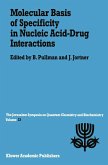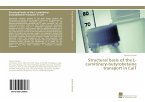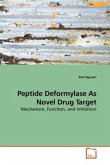This thesis describes structural and biochemical
studies conducted on the most potent toxins known to
man--clostridial neurotoxins. These remarkably
well-adapted proteins block neurotransmitter release
resulting in the paralytic conditions botulism andtetanus. The toxins deliver highly specialized
proteases inside nerve cell where they act on
essential neuronal proteins called SNAREs with
unparalleled selectivity. Here, x-ray crystallography
is employed to obtain a high-resolution structure of
a botulinum neurotoxin protease in complex with its
target SNARE. The determinants of the protease''s
exquisite specificity are shown to be an array of
previously unknown binding sites that enhance
catalytic efficiency. Additionally, structural
studies of tetanus neurotoxin were conducted and are
described within. The function of clostridial
neurotoxins is beautifully reflected in their
architecture; the molecular structures described here
reveal how these amazing proteins seek and destroy
their intracellular targets. Ultimately, this
research could be applied to the development of novel
and extremely specific inhibitors of these
extraordinarily powerful neurotoxins.
studies conducted on the most potent toxins known to
man--clostridial neurotoxins. These remarkably
well-adapted proteins block neurotransmitter release
resulting in the paralytic conditions botulism andtetanus. The toxins deliver highly specialized
proteases inside nerve cell where they act on
essential neuronal proteins called SNAREs with
unparalleled selectivity. Here, x-ray crystallography
is employed to obtain a high-resolution structure of
a botulinum neurotoxin protease in complex with its
target SNARE. The determinants of the protease''s
exquisite specificity are shown to be an array of
previously unknown binding sites that enhance
catalytic efficiency. Additionally, structural
studies of tetanus neurotoxin were conducted and are
described within. The function of clostridial
neurotoxins is beautifully reflected in their
architecture; the molecular structures described here
reveal how these amazing proteins seek and destroy
their intracellular targets. Ultimately, this
research could be applied to the development of novel
and extremely specific inhibitors of these
extraordinarily powerful neurotoxins.








